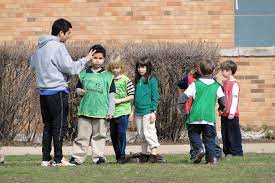Embracing and celebrating your child’s strength.
4 minuteRead

By Samyati Mohanty
When all of the complexities are stripped away, an effective child neuropsychological evaluation is all about supporting achievement and confidence.This is due to the fact that the evaluation procedure is designed to recognise and appreciate your child's abilities while also recommending tools and situations that will aid in their development. I'm sure you've watched your child achieve success, and as parents, you've felt the excitement, pride, and relief that these achievements bring.
RELIEF, to be precise. I say this because I've seen firsthand how success is not a given nor a guarantee when it comes to raising our children. We expect our children to thrive, attach, adapt, and learn from the start. This produces a seemingly endless number of "developmental hurdles," which many people readily overcome as they grow older. At the same time, the vast majority of our children will face challenges, sometimes for unknown reasons. This is where neuropsychological testing can help you identify your deficiencies.
Specifically, parents are given the option to intervene when we recognise our child's shortcomings. We get insight into the sources of our annoyance, overwhelm, and rage. We also gain insight into why certain "hurdles," such as making a friend, reading as fluently as a classmate, or finishing an exam on time, are difficult to overcome. In this way, loving our children's flaws equally should be the goal.
I understand that no parent likes to learn that their child has a flaw. The reality is that we all have at least a few, and that they have less of an impact on our lives when they are recognised and addressed. When this happens, our child's chances of success and confidence increase, and this growth only adds to his or her ability to achieve and smile freely.
Here are some ideas for focusing on our children and how to find your child's strengths:
#1 Embrace Your Individuality
Discuss how each of us is different and has different strengths through child's strengths examples. To determine each of your distinct personalities and character traits, consider taking a strengths or personality survey.
#2 Don't Make Comparisons
"Everyone is a genius," says the narrator. But if you assess a fish by its ability to climb a tree, it will believe it is stupid for the rest of its life."
—Einstein, Albert
Avoid comparing your children to their siblings, other children, or the online versions of other children's parents.
#3 Discuss Your “embracing your child's strengths” methods
Practice affirmations, mood management, and the ability to be open to expand your "strengths" vocabulary.
We are happier when we spend more time focusing on and improving our strengths than correcting our flaws. This applies to both children and teenagers, as well as adults.
Traditionally, parents have spent more time and energy focusing on their children's flaws than on embracing your child's strengths. We focus on the lowest grades rather than the areas where we are most interested and successful. We give a strong message to students through extra instruction-tutoring and coaching: "You are not good enough and must be repaired." We recruit tutors and require them to devote extra time to the subject that they dislike.
We all know that spending more time doing things we don't like doesn't lead to a happier existence as adults. However, how do we compel our children to use their time in productive ways?
Many children are learning that they are expected to excel in all areas of their lives and that their flaws make them unworthy. Despite the fact that common sense and personal experience tell us that perfection in all areas is neither realistic nor achievable, our culture continues to transmit the contrary message to our youth. While there are some essential academic competencies that children must learn, this overemphasis on flaws can have detrimental consequences, such as feelings of worthlessness, apathy, melancholy, anxiety, and suicide, to mention a few.
Recent study has shown that shifting from a deficit model, in which we focus on what is wrong with the child, to a strength-based model, in which we focus instead on what is going well for the child, can ease much of the tension and stress our youth experience.
Positive psychology research has shown that guiding our children to focus on and exploit their strengths rather than continuously trying to correct areas of weakness gives them the best chance of being happy and healthy adults. A strengths-based approach can help youngsters gain confidence and enhance their outlook, which will most likely lead to better results in all areas, including those that are weak.
Write, Record and Answer! Consume Unlimited Content! All you need to do is sign in and its absolutely free!
Continue with one click!!By signing up, you agree to our Terms and Conditions and Privacy Policy.















